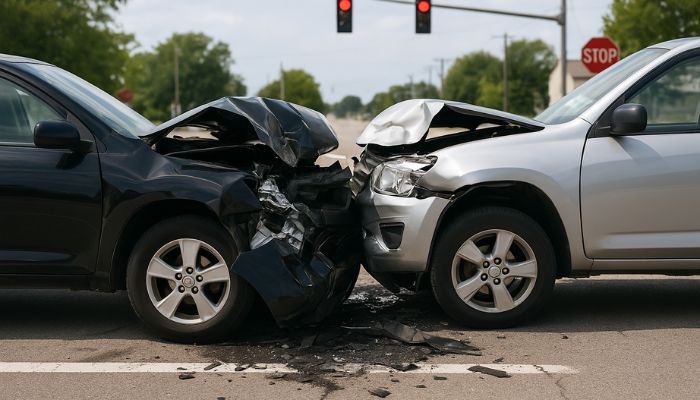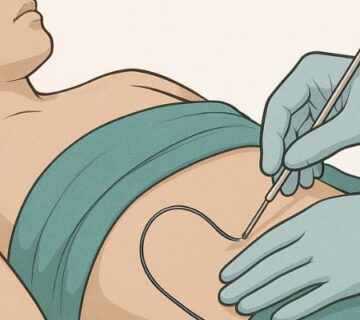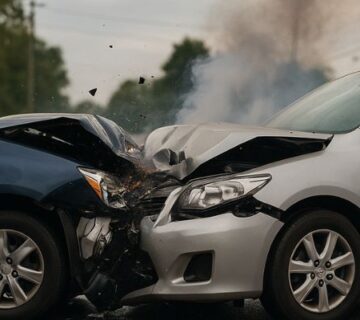A motor vehicle accident is something most of us hope to avoid, but it can happen when we least expect it. The aftermath can feel overwhelming, even for the most composed individuals. However, staying calm and taking the right steps immediately after the accident really matters—not just for your safety but also for resolving the situation effectively.
From ensuring everyone is safe to documenting the incident and dealing with insurance, there are key actions to take that can protect you both legally and financially. Read on to discover practical steps to protect yourself and others when faced with the unexpected.
Table of contents
Check for Injuries
After a motor vehicle accident, stay calm and focus on safety. Start by checking yourself and other co-travelers for injuries. If someone is hurt, call 911 immediately for medical help. Avoid moving individuals with serious injuries unless there’s immediate danger, like a fire or another life-threatening hazard.
Move Vehicles to a Safer Place
If it’s safe and possible, move your car to the side of the road to prevent further accidents. Be mindful of traffic as you do this. If the vehicle cannot be moved, stay inside with your seatbelt fastened until emergency services arrive.
Turn On Hazard Lights
Turn on your hazard lights to alert other drivers about the situation. This small step helps them slow down and pass cautiously. If you have emergency flares or reflective triangles, use them to create a warning zone around your car for added safety.
The Insurance filing Process After a Motor Vehicle Accident
Notify Your Insurance Provider Quickly
Start by contacting your insurance company as soon as possible. Claims can often be filed online, through a mobile app or call. Have important details ready, like the accident date, location, and time, along with the other driver’s insurance information and any police report numbers.
Document the Scene
If it’s safe, take clear photos and videos of the accident site. Capture vehicle damage, road conditions, your surroundings, and any visible injuries. Also, gather witness contact details; their statements may support your claim later. Avoid admitting fault at the scene, as liability is determined during the claims process.
Work With Your Insurance Adjuster
Once your claim is filed, an insurance adjuster will be assigned to your case. They’ll review the details, possibly inspect your vehicle, and may ask for additional documents like repair estimates or photos. If your car isn’t drivable, your insurer can help set up towing services and may offer rental car assistance, based on your coverage.
Handle Vehicle Repairs
You’ll typically have the option to choose a repair shop or use one from your insurer’s preferred network. If the damage is extensive and your car is declared of no use, your insurance company will reimburse you for the vehicle’s market value, minus any deductions.
Dealing With Fault and Coverage
If the other driver is responsible, their insurance should cover your damages. However, if they’re uninsured or underinsured, your policy (if it includes uninsured motorist coverage) may step in. Reviewing your own policy helps ensure you know what’s covered and how to proceed.
When to File a Police Complaint After a Motor Vehicle Accident
Filing a police complaint after a motor vehicle accident depends on the situation. Most states require you to report accidents involving injuries, death, or significant property damage. For example, in Alabama, accidents involving injury or death must be reported immediately, typically by calling 911. Similarly, in California, reporting is essential if there are injuries or damages exceeding a specified threshold.
Even if your state doesn’t mandate filing a complaint for minor accidents, doing so is a safe choice. A police report creates a written record of the incident, which can be critical for insurance claims or potential disputes.
Process for Filing a Police Complaint
- At the Scene:
- Call 911 as soon as it’s safe. Provide accurate details about the accident, including the location, time, and any injuries.
- When law enforcement arrives, cooperate properly. Stick to the facts and avoid speculating or admitting fault.
- Gathering Information:
- Record key details yourself, like the other driver’s information, photos of the scene, vehicle damages, and witness contact information. These can complement the police report.
- If Police Don’t Respond:
- Some departments do not send officers to minor accidents. If this happens, you may need to file a report yourself.
- Visit the local police station, DMV, or the relevant website to complete and submit the accident report form.
- Request the Report:
- Ask how and when you can obtain a copy of the official report. Review it carefully for accuracy and follow up if any corrections are needed.
Legal Compliance to Keep in Mind
Failing to report an accident when required can lead to penalties, including fines, license suspension, or even criminal charges. Additionally, insurers often need a police report to process your claim, making compliance even more essential. Be aware of deadlines; for instance, some states require filing within a specific number of days after the accident.
The Importance of Seeking Medical Attention
Following a motor vehicle accident, even if you feel fine, getting medical care is vital. Adrenaline and shock can mask injuries like whiplash, concussions, internal bleeding, or soft tissue damage, which might only show symptoms later. A timely checkup can find these “hidden” injuries before they become serious and harder to treat.
Where to Go for Care
Your choice of where to seek medical attention depends on the severity of your injuries. For conditions like chest pain, breathing difficulties, or head trauma, the emergency room is the best option, as they are equipped to handle critical cases. For less severe injuries, like minor cuts, mild sprains, or discomfort, urgent care centers can provide faster and more cost-effective treatment.
Why Documentation Matters
A medical evaluation does more than just treating injuries—it creates a record that can be vital for insurance or legal claims. Having professional documentation ensures your injuries are taken seriously and supports your case if compensation is needed.
Recovering With Specialist Support
Specialists, such as chiropractors and physical therapists, are incredibly helpful for managing injuries like whiplash or back pain. They offer targeted treatments, including manual therapy and exercises, to reduce pain and help you regain mobility. Rest, coupled with rehabilitation, is important for a gradual recovery.
Addressing the Emotional Impact
Car accidents don’t just harm your body; they can take an emotional toll, leading to stress, anxiety, or even depression. A comprehensive recovery should also include care for your mental health.
Staying calm and following the right steps after a motor vehicle accident can make all the difference. Share this guide with others so they’re ready too. A little preparation goes a long way in ensuring safety and peace of mind.
For immediate help with any back injuries or pain management after a motor vehicle accident in Dallas, Tx, please contact pain specialist at Spine & Pain Institute of Texas.




No comment